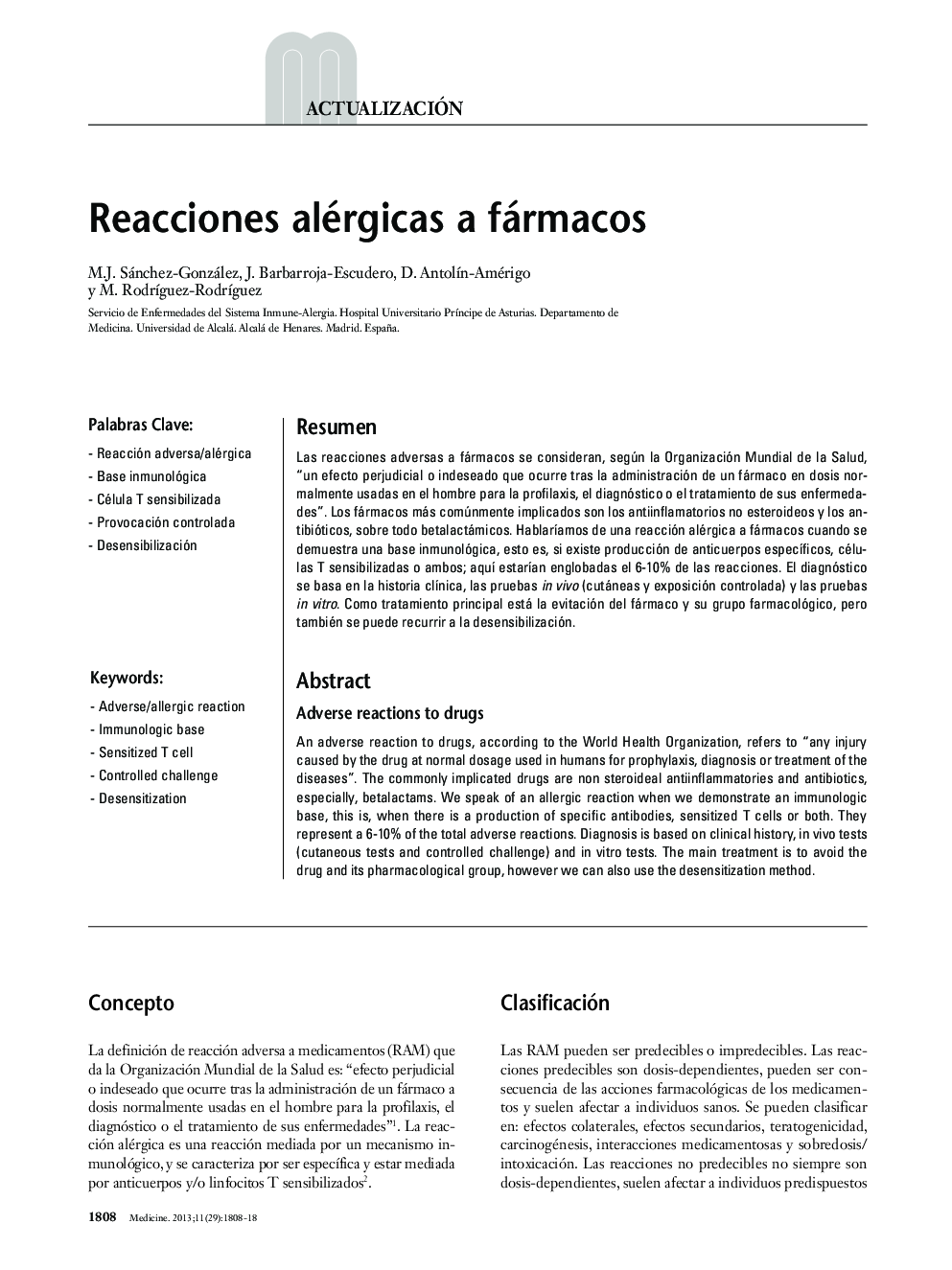| Article ID | Journal | Published Year | Pages | File Type |
|---|---|---|---|---|
| 3805969 | Medicine - Programa de Formación Médica Continuada Acreditado | 2013 | 11 Pages |
Abstract
An adverse reaction to drugs, according to the World Health Organization, refers to “any injury caused by the drug at normal dosage used in humans for prophylaxis, diagnosis or treatment of the diseases”. The commonly implicated drugs are non steroideal antiinflammatories and antibiotics, especially, betalactams. We speak of an allergic reaction when we demonstrate an immunologic base, this is, when there is a production of specific antibodies, sensitized T cells or both. They represent a 6-10% of the total adverse reactions. Diagnosis is based on clinical history, in vivo tests (cutaneous tests and controlled challenge) and in vitro tests. The main treatment is to avoid the drug and its pharmacological group, however we can also use the desensitization method.
Keywords
Related Topics
Health Sciences
Medicine and Dentistry
Medicine and Dentistry (General)
Authors
M.J. Sánchez-González, J. Barbarroja-Escudero, D. AntolÃn-Amérigo, M. RodrÃguez-RodrÃguez,
